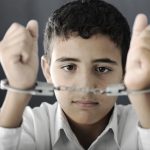Should Ten-Year Olds Face Criminal Liability?

A leading Professor of Criminology at the University of New South Wales has renewed calls for Australia to change laws which allow children as young as ten to be locked up in juvenile detention centres, saying it sets them up to become “entrenched” in the system.
The law in NSW
In New South Wales, the law prohibits children under the age of 10 to be prosecuted for a criminal offence.
This principle is enshrined in section 5 of the Children (Criminal Proceedings) Act 1987.
The Children’s Court applies different sentencing principles and laws which place a greater emphasis on diversion and rehabilitation than the regime applied to adults. It is not until a person turns 18 (or 17 in Queensland) that they can be tried in an adult court.
The law is a little more complicated when it comes to children aged between 10 and 14. Most Western countries, including Australia, apply the principle of doli incapax to that age bracket – which is a presumption the kids are incapable of forming the intention required to commit crimes.
This, however, is a rebuttable presumption – meaning that if the prosecution is able to establish that the child understood what they were doing was ‘seriously wrong’ – along with each element of the offence in question – the child can be tried and convicted of a crime.
What’s more, children as young as 15 can be transferred to an adult facility in certain circumstances.
International calls to raise the age of responsibility
Amnesty International strongly advocates raising the age of criminal responsibility – arguing that the current age of ten contravenes Australia’s obligations under the United Nations Convention on the Rights of the Child.
Although the Convention does not specify a minimum age of responsibility, a UN Committee recommended in 2012 that children under the age of 12 should not be held criminally responsible for their actions in any circumstances.
Acting on this recommendation, several countries amended their laws to reflect to increase the applicable age, including Canada and Ireland, but there are no plans for Australia to follow suit.
Amnesty International argues that the issue is particular relevant to Australia because of the significant overrepresentation of Indigenous children in custody.
The organisation’s argument is supported by the UN Committee on the Rights of the Child, which has expressed the view that Australia’s current age of criminal responsibility is too low, recommending that we “consider raising the minimum age of criminal responsibility to an internationally acceptable level”.
Other organisations such as UNICEF, the National Children’s and Youth Law Centre, and the National Association of Community Legal Centres have all supported the call to raise the age of criminal responsibility.
Locking up kids makes them life-long offenders
Professor Chris Cunneen of UNSW says there’s mounting evidence that locking young children up causes them significant harm, and sets them up for a lifetime in the criminal justice system.
“It is well established that one of the key risk factors for criminal justice contact, is prior contact,” Professor Cunneen points out. “… increasing the age of criminal responsibility has the potential to reduce the likelihood of lifelong contact with the criminal justice system.”
His research suggests that providing young children with appropriate support mechanisms is far more effective in reducing reoffending than locking them up in detention centres.
Prevention not just punishment
The Julie Edwards is the CEO of Jesuit Social Service in Victoria, and organisation which operates the Youth Justice Community Support Service. She agrees with Mr Cuneen’s views, highlighting that youth workers have a unique opportunity to redirect the lives of children.
In NSW, Just Reinvest’s Sarah Hopkins says her organisation focuses on prevention by channeling resources into programs which address the underlying causes of crime. The organisation has seen positive outcomes in a number of areas including Bourke – the state’s highest youth crime area.
Indigenous children at highest risk
Professor Cunneen’s research suggests that Indigenous boys aged 10 to 12 make up three-quarters of all children who appeared before NSW Children’s Courts between 2006 and 2015.
He argues that a multi-faceted approach is required to youth crime – one which focuses on underlying issues such as socio-economic disadvantage, poor parenting, truancy, poor school performance and lack of hope for the future, and provide young people with practical strategies for learning to work within societal rules and community norms, rather than rail against them.








